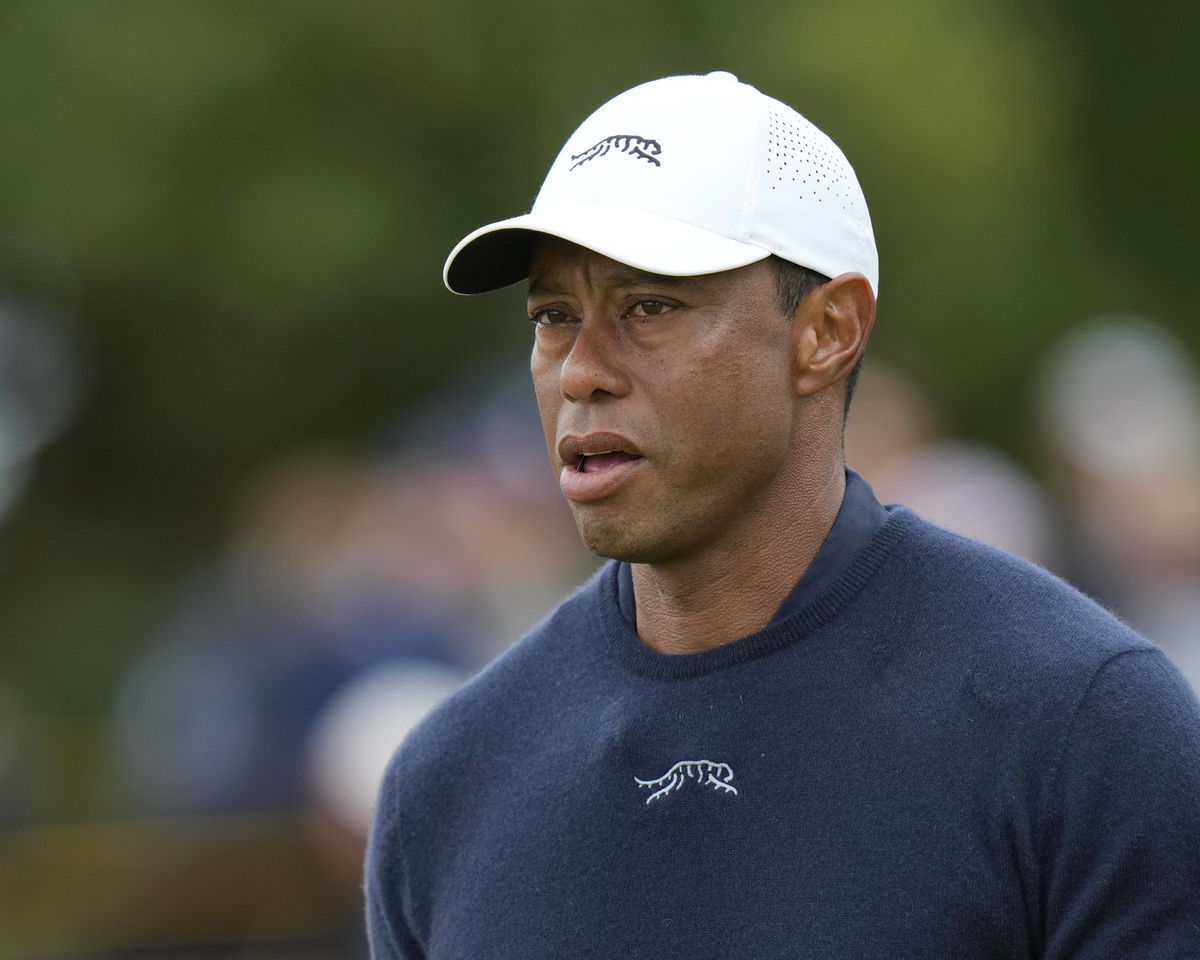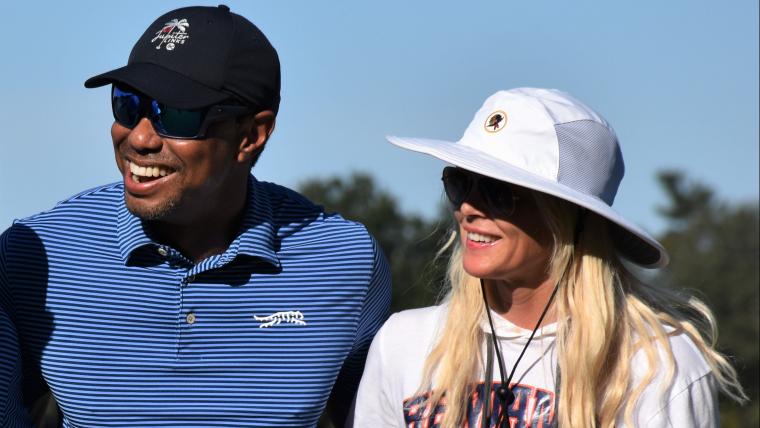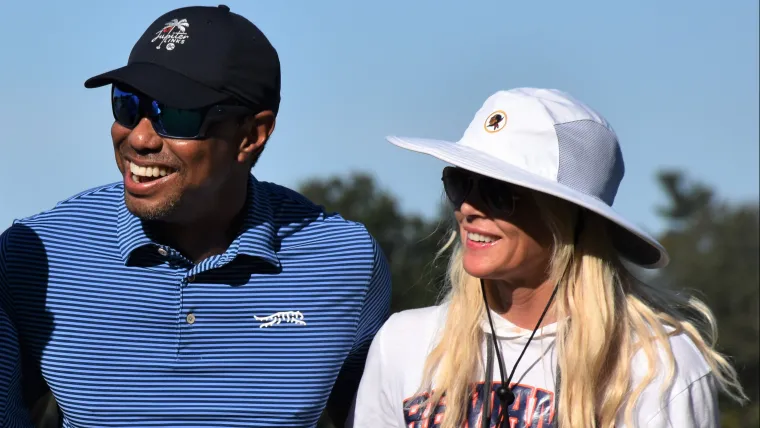For Darren Clarke, the 2006 Ryder Cup was not like any other chapter from his storied golfing career. It was different – a week steeped in grief and remembrance. Clarke had lost his wife, Heather, just six weeks earlier, after her 5-year resilient battle with breast cancer. As Clarke often recalls, one of her dying wishes was for him to play in the Ryder Cup if he ever received a call. And as the universe had it, he did. The moment he stepped onto the K Club’s first tee, he was met with a roar from the crowd, arguably never experienced by any other player in the sport. But Clarke’s personal loss was mirrored across the Atlantic by none other than Tiger Woods.
Watch What’s Trending Now!
Woods, like Clarke, was fraught with the death of his father, Earl Woods, who passed away on 3 May 2006, from prostate cancer. Earl had been Woods’ mentor and his fiercest supporter. Clarke, who captained the Ryder Cup in 2016, spoke on Golf Channel. He remembers seeing Woods on the practice range that week. Two men in pain, while playing against each other, acknowledged the pain the other was going through. “It was obviously very emotional. Tiger lost his dad as well, not much before that. And we saw each other on the range earlier that week. It was special,” Clarke says.
It was indeed special not just because of the symbolism of the event but also the similarity the two cases held. Where Clarke’s wife has been supportive of him in his golf career, Earl Woods was a “best friend and greatest role model” for a young Tiger. He had been fighting cancer for years, just like Clarke’s wife. By 2004, it had spread, which made it difficult for him to attend Woods’ tournaments. But after his death, his spirit kept impacting Woods’ game.
ADVERTISEMENT
Article continues below this ad
One of the coolest golf photos I’ve seen.
19-yo Tiger Woods SPINNING CLUBS on the range at the 1995 U.S. Amateur.
Earl Woods, always there, wearing the freshest Reeboks. pic.twitter.com/SQ4efa4QzF
— Sean Zak (@Sean_Zak) October 9, 2019
Earl was someone who always wanted to attend all of Tiger’s events, as he had invested a lot in Tiger’s success. In 1997, after Woods earned his first Ryder Cup ticket, Earl was raging as he didn’t receive the invitation from the official US team entourage. “I can unequivocally state that I’m more responsible for Tiger being where he is today and have a bigger contribution to the team,” he said in one of the interviews.
ADVERTISEMENT
Article continues below this ad
And when, years later, his father was again absent from the stands, Tiger’s steps faltered. He struggled on the course, collecting his third consecutive Ryder Cup defeat. His disappointing performance contributed to Europe’s dominant 18.5-9.5 victory. But as everyone knows, Tiger eventually came out of this draught, but not without much ease.
Earl’s death left a profound void in Tiger Woods’ life, one that manifested in his game in the months to follow. At the US Open, just six weeks after Earl’s passing, Woods missed the cut for the first time in 38 major tournaments! He later admitted how he had gone into this tournament without any preparation. “When I got ready for this event, I didn’t really put in the time. I didn’t really put in the practice, and consequently missed the cut pretty easily,” Woods said back at the time.
But Woods, being Woods, captured the 2006 Open Championship, just two months later, at Royal Liverpool. The moment he won, he broke down heavily on his caddy Steve Williams’ shoulders, later dedicating his victory to his late father. “Stevie said to me as we were coming up the last, ‘This one is for dad’. I just miss my dad so much. I wish he could have been here to witness this.”
Tiger eventually found his footing in the game again, and he continued honoring his dad in various other ways, one of them being how he mentors his son. “I wish my dad could have met Charlie. They would have loved each other.” Charlie Woods was born in 2009, six years after his grandfather’s death.
Looking back, the 2006 Ryder Cup represents more than a European triumph or personal milestones. Where Tiger Woods’s struggles belied the internal battle he fought, Clarke turned his grief into fuel for the European’s victory.
ADVERTISEMENT
Article continues below this ad
Darren Clarke’s emotional highs of the 2006 Ryder Cup
“Without Heather having passed six weeks prior to that, one of her dying wishes was if I got a call…that she wanted me to play,” Clarke recalls on the Golf Channel interview. It was this heartfelt request of his wife that drove him to make himself available for selection. And the way he got selected was controversial, too. He didn’t have a stellar performance and could not automatically qualify for the team. Still, European captain Ian Woosnam chose Clarke as one of his picks, just to honor Heather’s last wish.
The roar of the crowd when Clarke stepped on the course was “surreal,” in his own words. Despite the heaviness of the grief, Clarke channeled his emotions into his performance. He crushed his opening drive 320 yards and followed it with a first-hole birdie, setting the tone for the week. He eventually went on to win all three of his matches. In the four balls alongside Lee Westwood against Tiger Woods and Jim Furyk, Clarke’s memorable chip-in on the 16th hole captured his courage. “I was more worried about going there and not performing, to not help my teammates. It was all about the team…I would have politely declined the invitation. But, I had those close to me at the time, were telling me, ‘No, you have to go and play.’ I did. I’m glad I did.”







